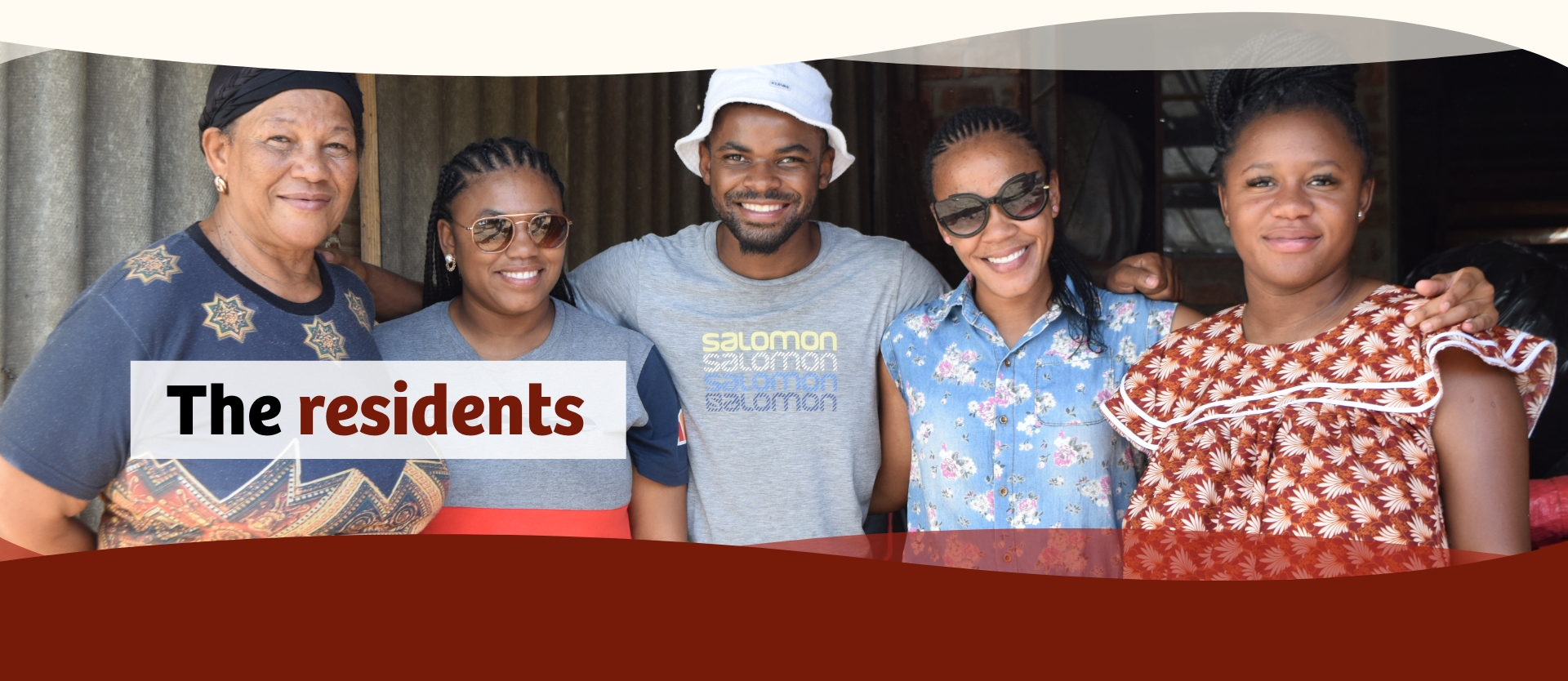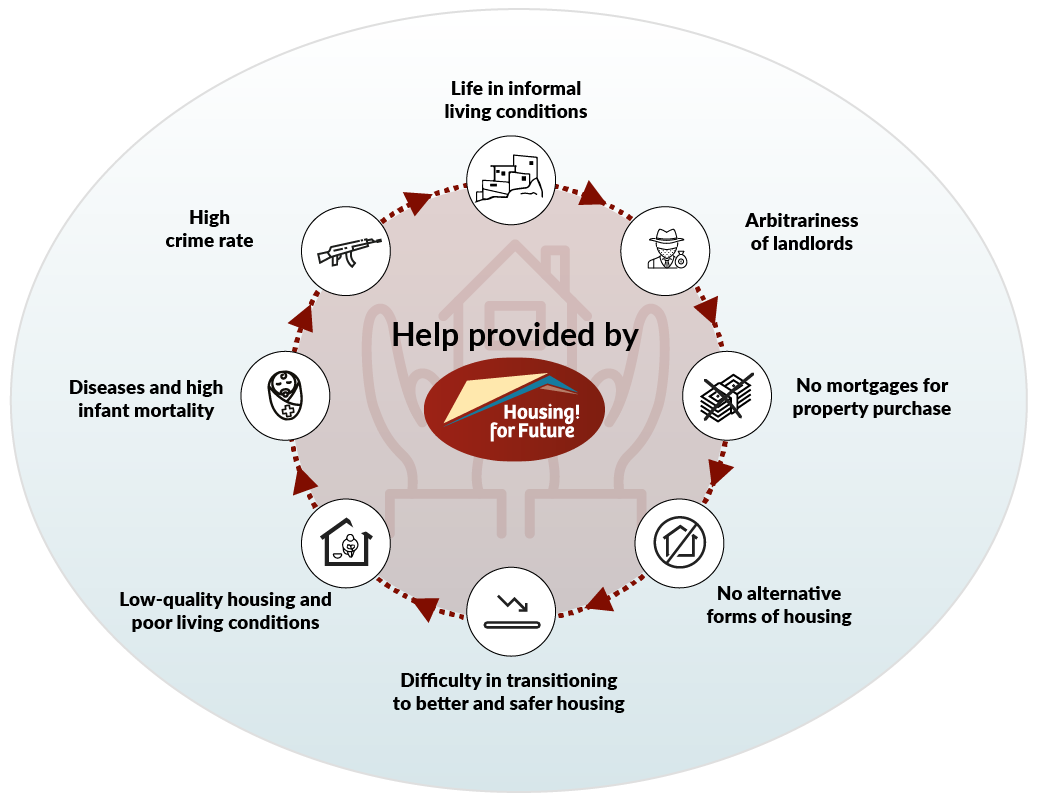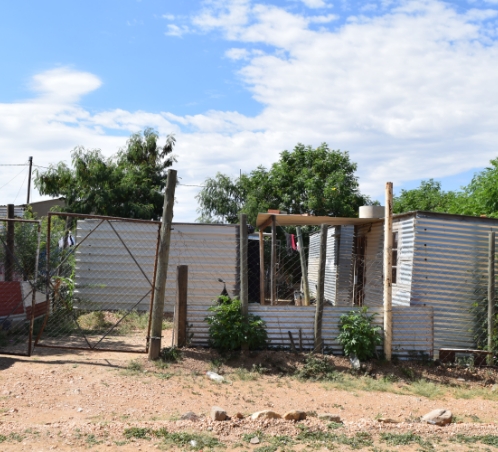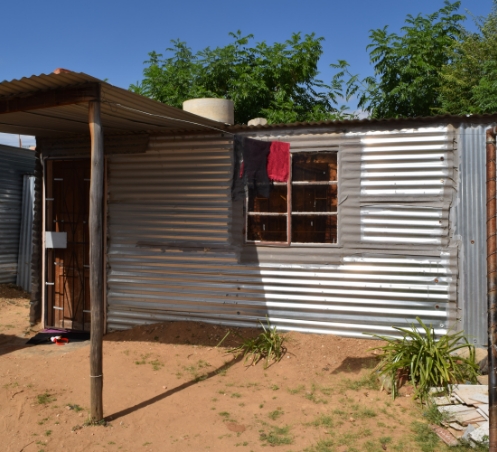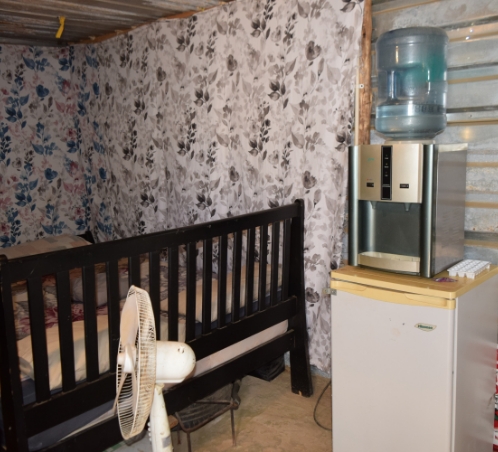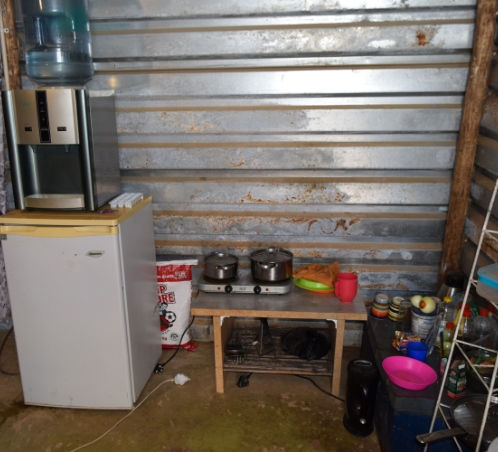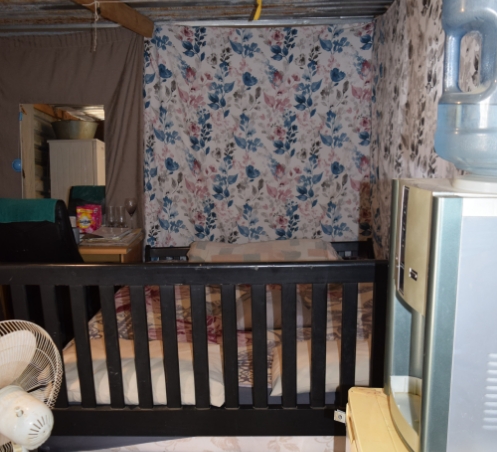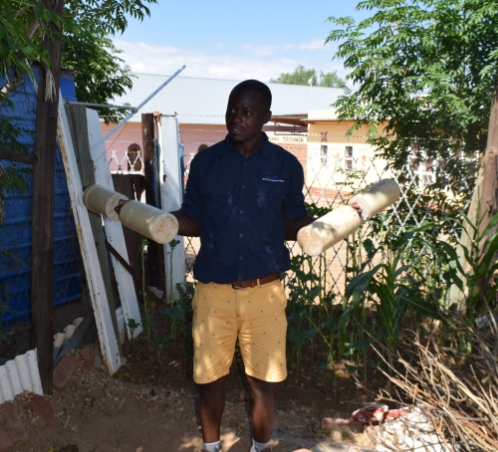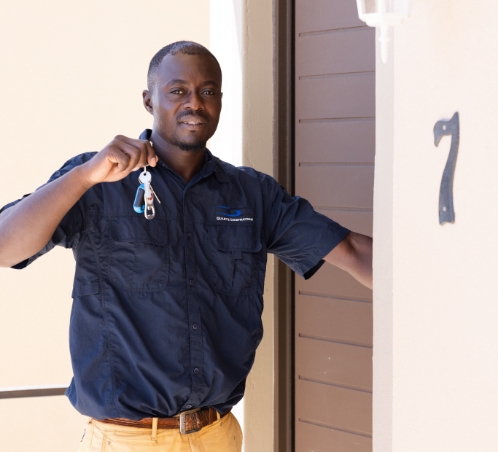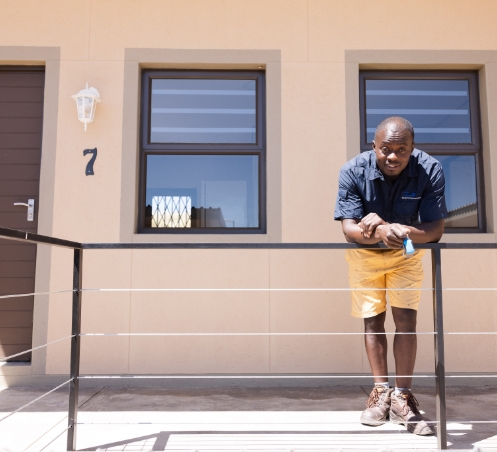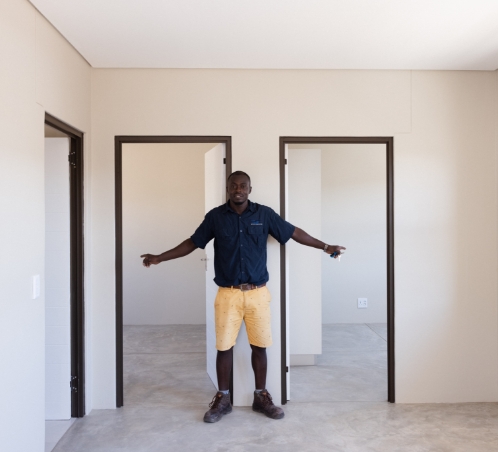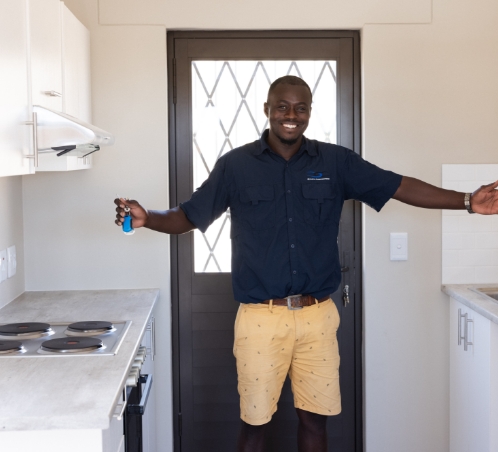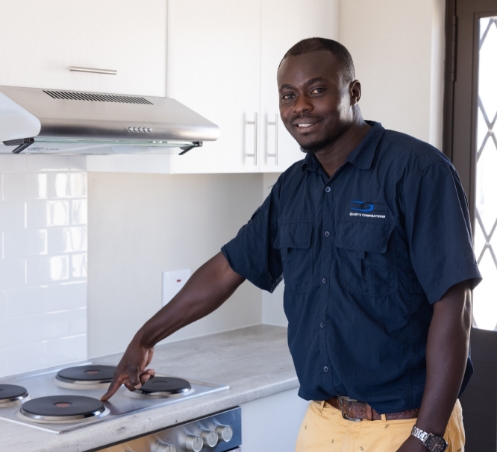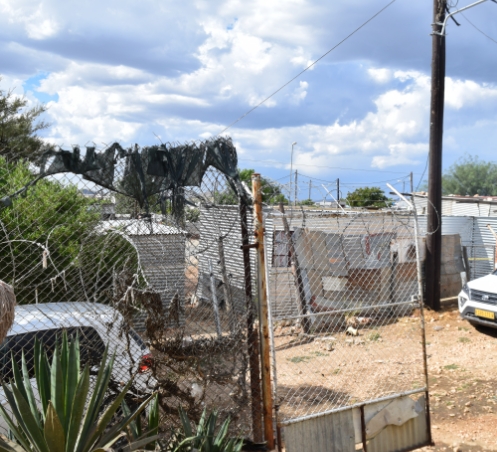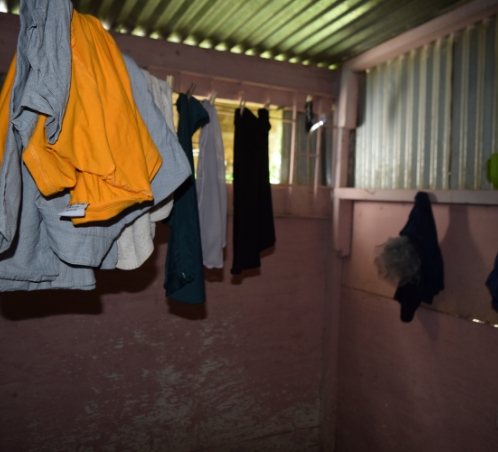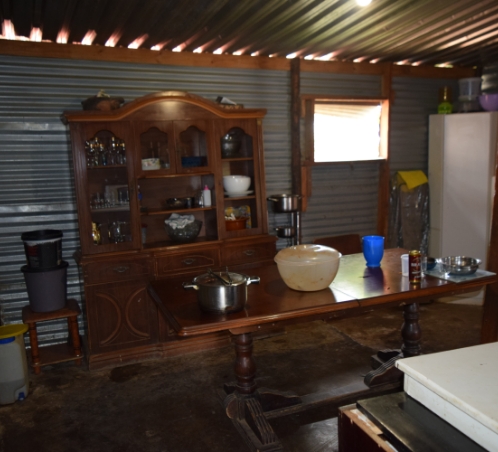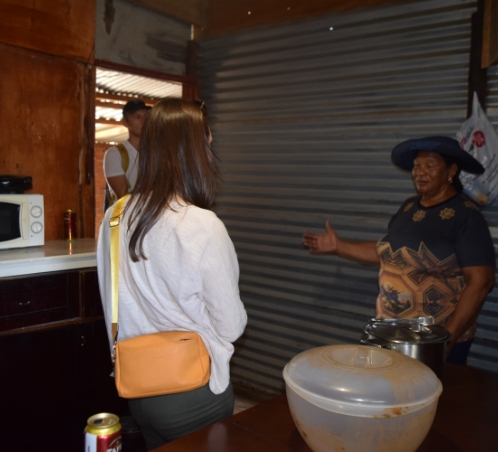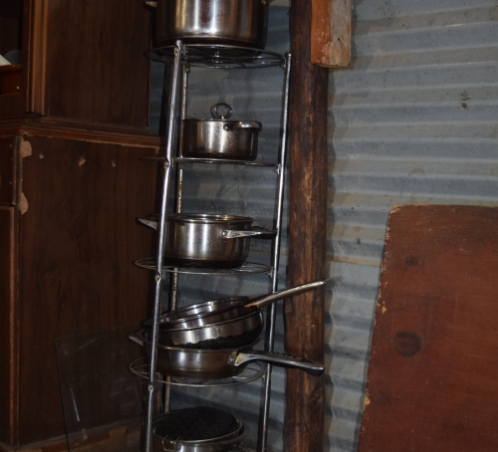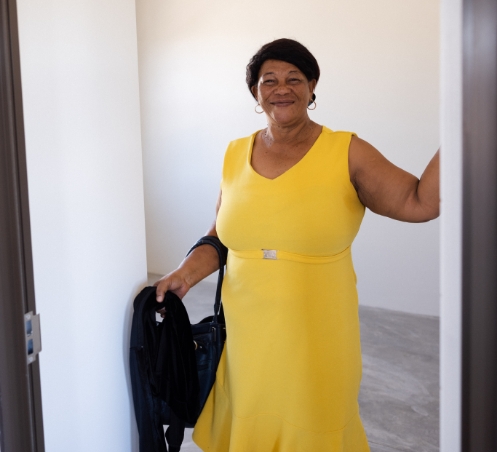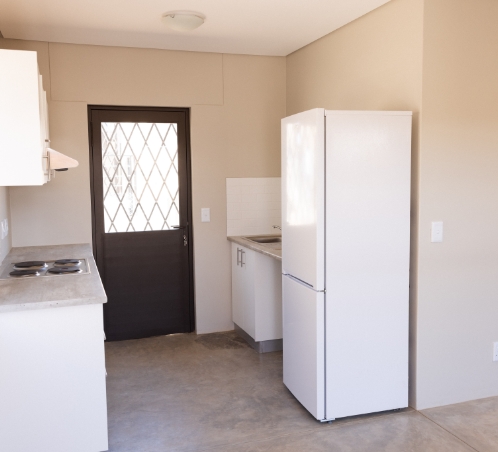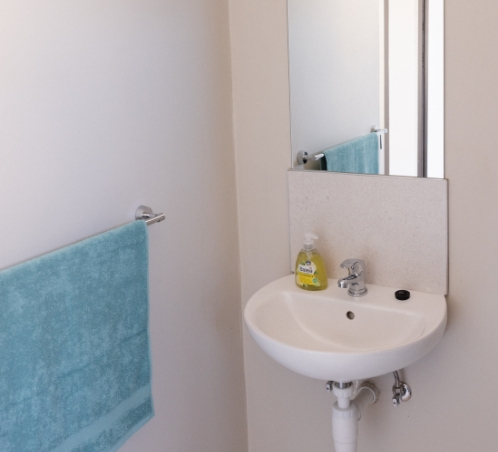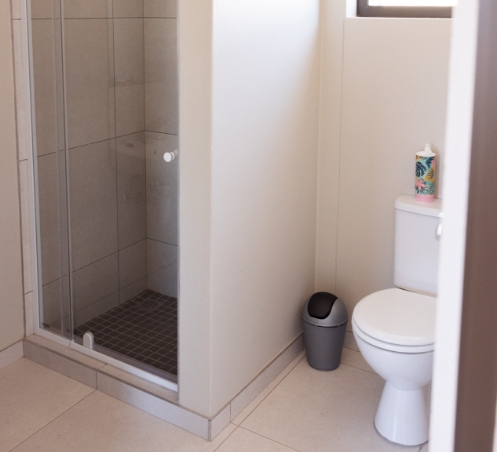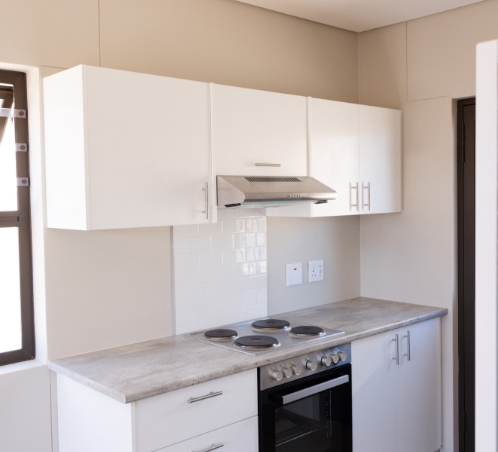We visited Agitha on Namibia’s Independence Day. Her house can be considered typical for Namibia: some parts are made of concrete, whereas others consist of corrugated iron sheets. These types of houses are never truly finished but are added onto when circumstances change, i.e., when new family members come to stay. Agitha works as a cleaner for various companies and earns relatively well. Also, her family members are happy to assist her with rent payments.
As is the case with a lot of houses similar to Agitha’s, there is no running water. The water source is outside the house, and the toilet is shared with several neighbours. Agitha could hardly believe her luck when she was chosen as a tenant for one of the 25 “Meine Heimat” houses, and with tears in her eyes, she thanked us multiple times. All these encounters with the future tenants were deeply moving, making our own problems in Germany suddenly seem insignificant.

